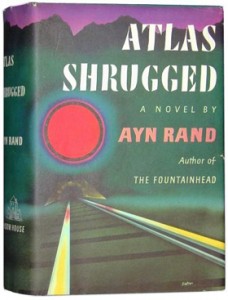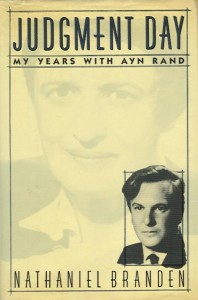So, yeah, see, the trouble is that I’ve been too busy to do much reading lately. If I sit down and pick up a book, I just fall asleep! So here’s yet another non-review…

Okay, let’s by up-front and honest. I hate these things. Is there a term for them? These photos that get posted on Facebook, and presume to present the wisdom of the ages in sound bytes so simple that even a TV news anchor could repeat them and pretend to understand them. I’ve often been tempted to create one that says “if your political and/or life philosophy fits here, you shouldn’t be allowed to vote.” But I can’t decide what picture to put behind it.
Why do these things bother me so much? Because they are so simple and basic. They rely on unstated assumptions, and they carry with them the unspoken message “and if you don’t agree, then you not only can’t be my Facebook friend, you also can’t come into my bomb shelter, and you can’t breathe the same oxygen I do. Please die now.” Okay, that’s a little extreme, but they certainly don’t promote tolerance or the acceptance of any kind of middle ground. They’re all about polarization.
Case in point, the above photo of Ayn Rand side-by-side with an artist’s rendering of some Caucasian whom a lot of people will mistake for Jesus of Nazareth. Underneath each is a quote. One is verifiably Rand’s: “I am against God. I don’t approve of religion. It is a sign of a psychological weakness … I regard it as evil.” The other is a translation of a translation of a second-hand account of something Jesus is alleged to have said, put to parchment nearly 40 years after Jesus’s death, possibly by a Syrian or Palestinian author: “It is easier for a camel to go through the eye of a needle, than for a rich man to enter into the kingdom of God.” (The Gospel of Mark 10:25. The same quote is attributed to Jesus in Matthew, as these two gospels are believed to pull a lot of material from the same sources. Indeed, as Mark is the oldest Canonical gospel, it may have been a source for Matthew.)
Beneath all this is the admonishment, “Dear Republican Party… Please choose one. Otherwise you’re doing it wrong.”
Okay, first question… What is “it?” This is another pet peeve of mine: using the word “it” in cases where the reader cannot determine from context what “it” is. It’s bad writing. It’s disorganized thinking. See? Both those “its” refer to the earlier, defined act of not giving a proper definition in context. But the viewer of this image is left to decide from his or her own knowledge and experience what the author means by “it.” In other words, he or she is left to try and read the author’s mind.
My telepathy tells me the author means “practicing political philosophy,” but my telepathy has been known to err.
Next question… What is the assumption? I said there’s an unstated assumption in all of these whatever-they-ares that litter social media. This one’s a little tricky. On the surface it’s that Jesus and Ayn Rand are of sufficiently equivalent stature that they should be compared at all.
Of course, from one perspective, they are. If you look at the historical Jesus of Nazareth, son of a carpenter, and the historical Ayn Rand, daughter of a Russian pharmacist, you see a lot of similarities.
While only one of the people pictured is a Jew, both Ayn Rand and the historical Jesus were Jewish. Ms. Rand just hasn’t been divested of her Jewry through centuries of artistic interpretation, as has this sandy-haired gentleman above. Give it time, though. In a recent Marvel Comics publication, she was depicted assisting Nazis, so at least one modern socialist is unaware of her ethnic derivation. And many, many modern Christians have grown up believing that Jesus was a White, Anglo-Saxon Protestant.
Both were precocious – Rand taught herself to read at six, and Jesus debated the clergy at twelve. Both disapproved of the societies into which they were born. Both spoke to the masses about the correct way to live. Both had disciples. Both have their words published in many languages, and those words are still in print long after their deaths. Jesus has had a much longer run, of course, but then Rand got power of veto over the words attributed to her, and he didn’t.
They did, of course, espouse very different philosophies. Jesus was a First-Century Jewish Apocalyptic prophet who believed that all the evil in the world was about to bring about a cataclysmic change, and that the only hope for humanity was to profess faith in the God of Abraham. Rand believed that man’s purpose was to live for his own fulfillment and happiness, and that his intellectual achievements were all he had to protect him from evil. Jesus believed in helping anyone who needed help, in order to lead them to God. Rand believed that a lot of that “helping others” talk became just another excuse for the less weak to prey on the more weak, along the way stealing everything they could from those who were truly strong.
So here are two of the Chosen People who both wanted to make the world a better place, though they probably couldn’t have agreed on the color of the sky, much less on what the purpose of human existence is supposed to be.
Looked at that way, sure, you can place them side by side and say “Could two people be any more different? Their philosophies surely can’t be reconciled.”
But if you’re a traditional Christian (and by that I mean, not a fundamentalist or an evangelical, but any Christian who believes Jesus is a redeemer, a savior, a messiah. That he’s something more than a charismatic social activist.) then Jesus and Ayn Rand cannot be compared. One is divine, the other is mortal. Period. Which means that the image depends on the acceptance of a second assumption, and that is that Jesus is not, in fact, divine.
(I bet the creator of the image would argue that there’s another possibility – that people like Paul Ryan see Rand as a god just as much as they see Jesus as one. That possibility exists only in the universe engirdled by their sarcasm. It is not reality. I will pay a cash reward to the first person who produces one confirmed Christian, not suffering an illness cataloged in the DSM-IV, who just as devoutly professes that Ayn Rand is of divine origin.)
“Please choose one, otherwise you’re doing it wrong?” Whoever wrote that probably also says that if you don’t vote either Democrat or Republican, then you haven’t actually voted.
But I get it, I do get it. The point the artist is making is that Republicans like Paul Ryan have let another idol (Rand) displace God and Jesus in their eyes. They’re putting their devotion to Christian ideals aside to hold up a belief that’s anti-welfare, anti-universal health care, anti-centrally planned economies. Jesus, after all, would support government welfare…
Wouldn’t he?
Well, he’s not here to answer. But when those on the Left start using Jesus as an excuse for the welfare state, I start to ask what ever happened to separation of Church and state? I agree with those who don’t want to hear America called “A Christian Nation,” who don’t want prayer in school, and who think atheists and Pagans should be allowed to be Boy Scouts. America is not supposed to have a state religion. Why then, is it okay to suggest that the American system of government should be built on the un-verified philosophy of a man (because, if you don’t have a state religion, you can only recognize him as a man for purposes of public policy) who wasn’t even a U.S. citizen, simply because some of the population assign supernatural significance to him?
Jesus is also known for saying that citizens of Rome were to “render unto Caesar that which is Caesar’s,” by which he meant that government was for the world of human making, not the world of God’s making. In spiritual matters, he advised his followers to deal only with God. Charity, to Jesus, seems to me to have been a spiritual matter. I don’t think he necessarily would have agreed that the best way to aid the poor was to have an a-religious bureaucracy collect money and redistribute it. That takes away the whole reason behind Jesus’s belief in charity – that it’s how you bring lost sheep back to the fold of the Lord.
My friend (and he is truly a good friend) who posted this on Facebook explained to me that, to him, it meant that you can’t be a follower of both Rand and Jesus. And maybe that’s my essential problem. I have heroes. I am happy to say that Rand and Jesus are two of them. But I don’t do following. I prefer to develop my own personal philosophy and make my own decisions. And I can tolerate neither the suggestion that I should do otherwise, nor the implication that Paul Ryan or anyone else is too dull-witted to do anything but follow a master. That’s my religious faith: that all humans have a spark of divine fire and the capability to think for themselves. If they use it.
Finally, the quotes that were picked concern me. They’re accurate, but they don’t either one really touch the core of their authors’ belief systems. Well, maybe the Rand one does. She did consider any sort of groupthink to be evil, and, as Marx noted, religion is often nothing but dogma and groupthink.
As to the camel and the eye of the needle… sigh… Redistributors of wealth love this quote… It appears to say that wealthy people are all evil. That’s not, I believe, what it was meant to say. It was meant to say that those who are very attached to the worldly things (as a rich person is prone to be) have a very hard time connecting to the spiritual. I don’t think Jesus meant that Heaven had a maximum income law and you’d be booted out if you showed up in a Lexus (though you might be if I was in charge of the gate!) I think he just meant that a person who’s so focused on worldly success as to become rich would probably not even try to accomplish the spiritual connection that he believed was necessary to come into contact with God, and thus dwell in Heaven.
Who is spiritually connected, after all? Ghandi? The Dalai Llama? Mother Theresa? Not a Lexus-driver in the lot. Who composed spirituals? Not the people who donated the stained glass windows to the churches, I can tell you that. No, spirituals, which ultimately gave us the heavenly sounds of jazz, were sung by slaves and destitute ex-slaves, whose only hope for a decent, humane existence was the promise of the Kingdom of Heaven as described by Jesus. People in desperate circumstances, are, of necessity, more spiritually oriented. Or, as I’ve frequently said to my friend Lance Woods, if we’d both been born penniless, he’d be Alfred Hitchcock now and I’d be Frank Capra. But we were born middle class, and so we never had full contact with our creative centers.
The Camel quote makes a valid point, but it’s so misquoted and misused that, well, it’s become meaningless.
And how about giving their most important quotes, instead of a couple selected by a cynic who hates Rand and distrusts Jesus, specifically to make them sound as diametrically opposed as possible. (Was that unfair? That may have been unfair. I don’t know the person who created this image. I assign to him/her the characteristics of the most malanthropic of the liberal atheists I have encountered. For all I know, the person is a liberal Christian who loves Jesus, or a conservative atheist Randite. But I doubt it.)
Ayn Rand said “Don’t work for my happiness, my brothers — show me yours — show me your achievement — and the knowledge will give me courage for mine.”
Jesus said, “’Love the Lord your God with all your heart and with all your soul and with all your mind.’ This is the first and greatest commandment. And the second is like it: ‘Love your neighbor as yourself.’ All the Law and the Prophets hang on these two commandments.”
Those two quotes, I think, much better serve to show what these exceptional people believed. I think it’s perfectly possible to recognize the greatness in both, without signing on to follow either.
My question is, would Ayn Rand or Jesus lend their moral support to any of the political candidates we’re currently being offered?
 Note: If you haven’t seen the film, take my word for nothing in here. PLEASE see it and draw your own conclusions. It’s still running in 65 theaters around the country.
Note: If you haven’t seen the film, take my word for nothing in here. PLEASE see it and draw your own conclusions. It’s still running in 65 theaters around the country.




